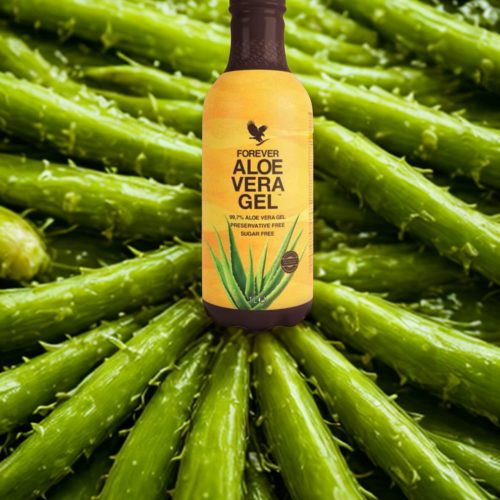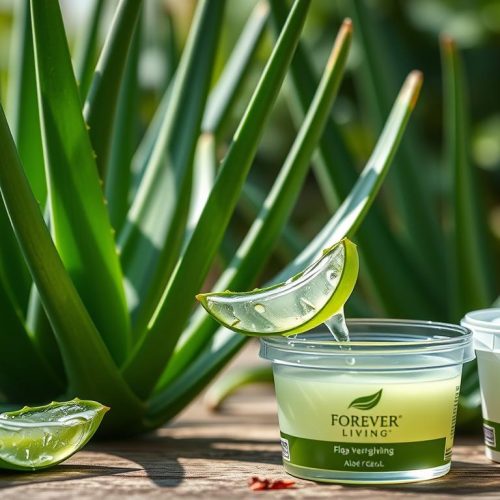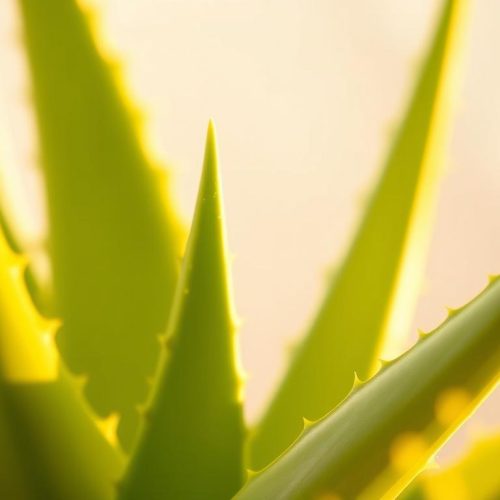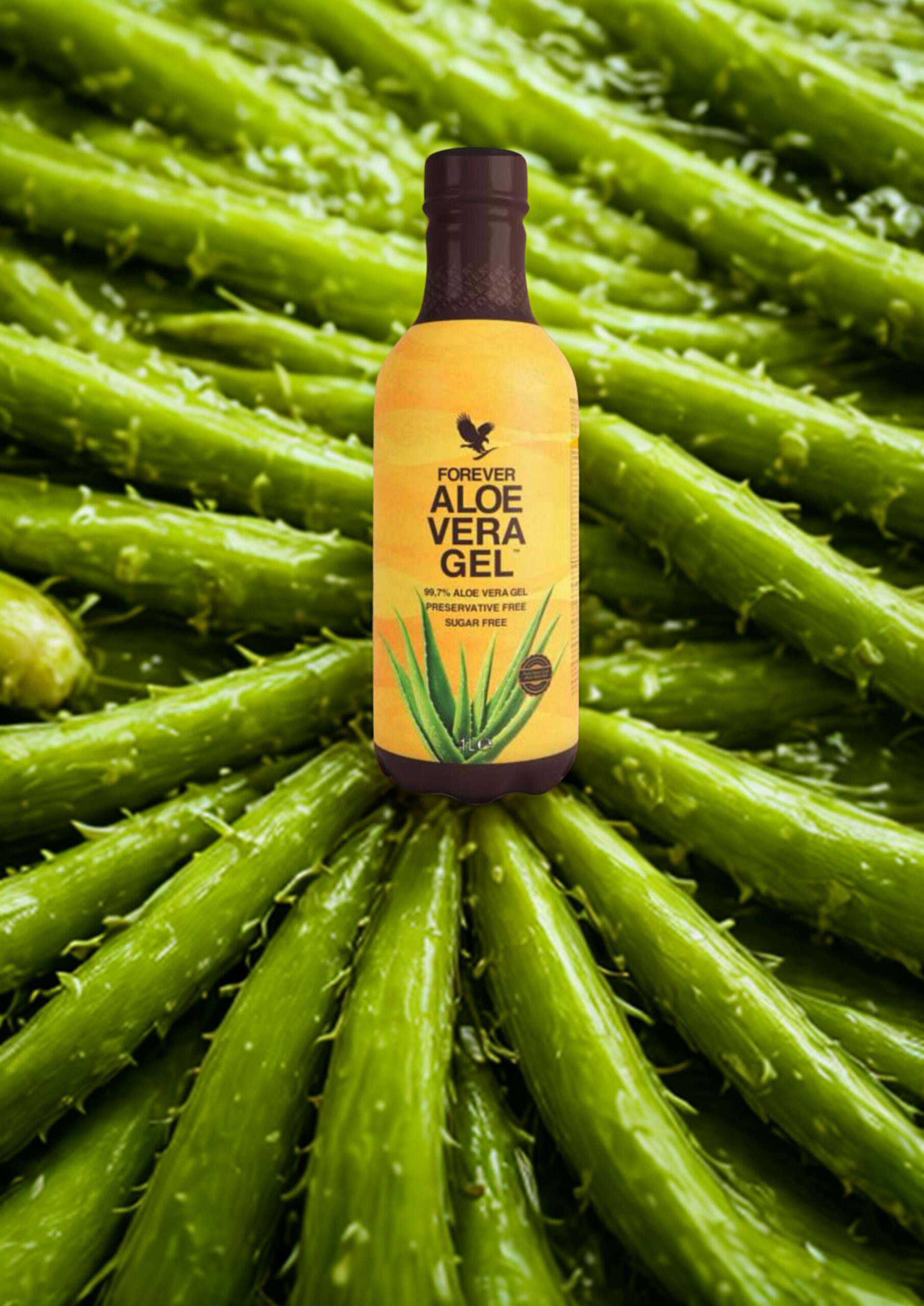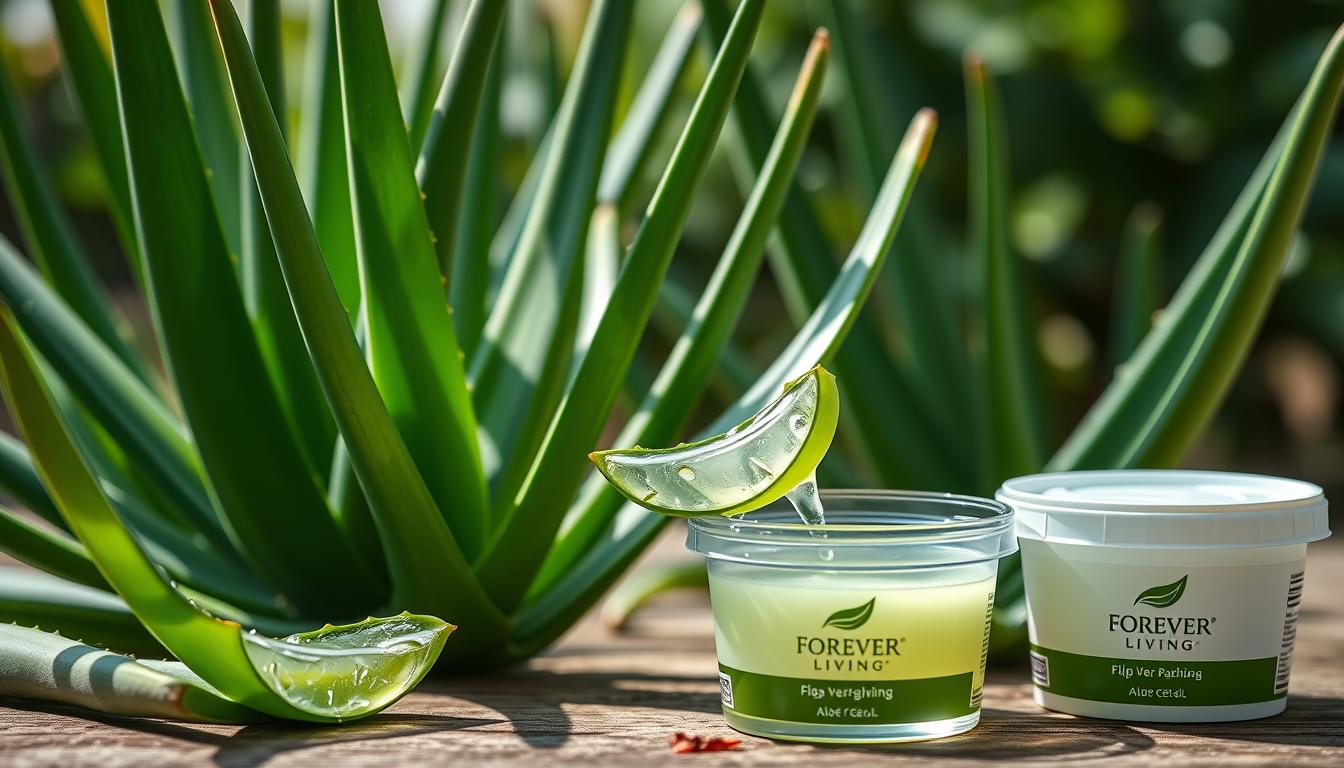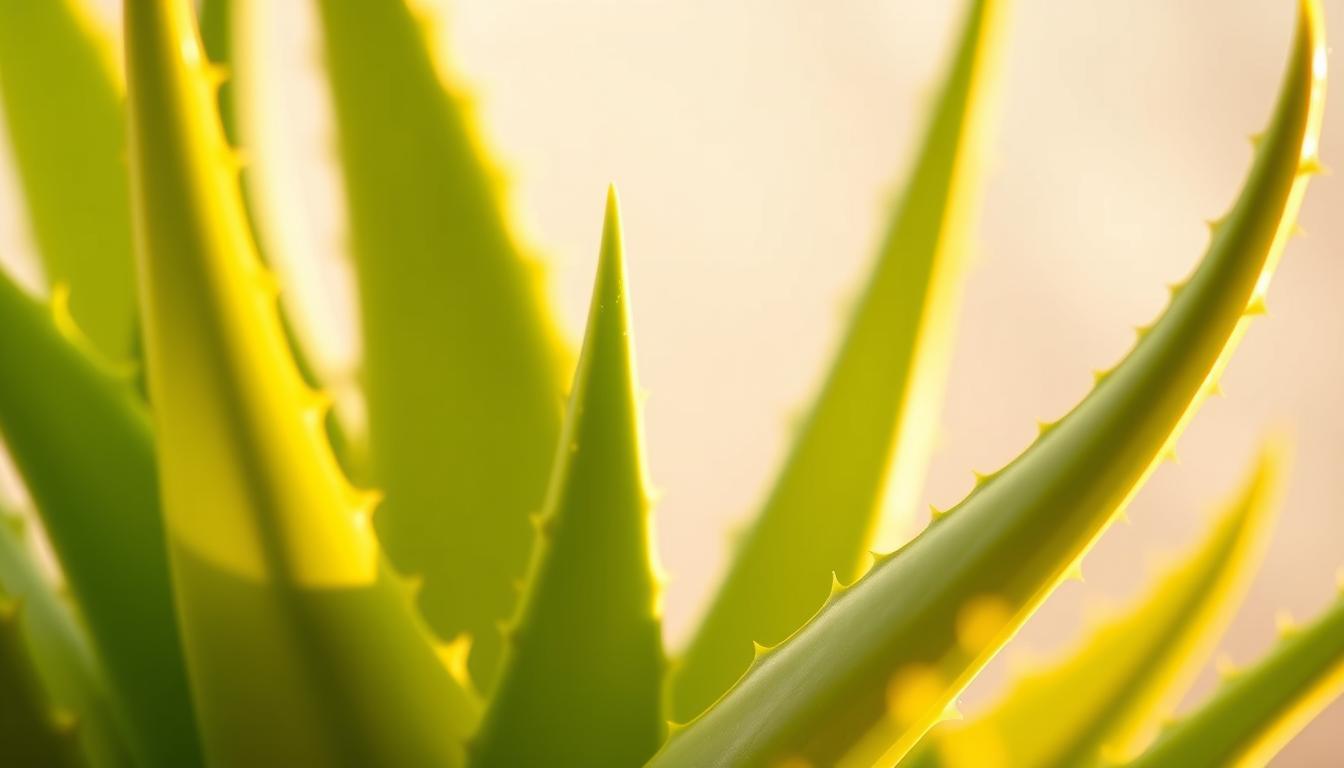- The Ancient Plant with Modern Misconceptions
- Myth1: Aloe Vera Cures Cancer
- Myth2: Aloe Vera Is Safe for Everyone
- Myth3: Aloe Vera Replaces Sunscreen
- Myth4: Aloe Vera Guarantees Weight Loss
- Common Aloe Vera Myths in Beauty and Skincare
- Debunking "Miracle Cure" Aloe Vera Myths
- The Truth About Aloe Vera: Separating Science from Marketing
- Conclusion
- FAQ
- Is aloe vera safe for everyone to use?
- Can aloe vera cure cancer?
- Can I use aloe vera as a replacement for sunscreen?
- Will consuming aloe vera help me lose weight?
- Can aloe vera heal all skin conditions?
- Are all aloe vera products created equal?
- Can aloe vera help manage diabetes or digestive disorders?
- How can I use aloe vera safely and effectively?
- What are the scientifically-backed benefits of aloe vera?
Aloe vera has been touted as a miracle cure for various ailments, from skin issues to internal health problems. However, not all claims about its benefits are backed by science. In fact, a significant number of people in the United States use aloe vera products under the assumption that they are supported by factual evidence.
The reality is that some of these claims are exaggerated or entirely false. For instance, some believe that aloe vera can cure cancer or lead to significant weight loss, but these assertions are not entirely supported by scientific research.
It’s essential to separate fact from fiction when it comes to aloe vera to understand its true benefits and limitations.
- The Ancient Plant with Modern Misconceptions
- Myth1: Aloe Vera Cures Cancer
- Myth2: Aloe Vera Is Safe for Everyone
- Myth3: Aloe Vera Replaces Sunscreen
- Myth4: Aloe Vera Guarantees Weight Loss
- Common Aloe Vera Myths in Beauty and Skincare
- Debunking "Miracle Cure" Aloe Vera Myths
- The Truth About Aloe Vera: Separating Science from Marketing
- Conclusion
- FAQ
- Is aloe vera safe for everyone to use?
- Can aloe vera cure cancer?
- Can I use aloe vera as a replacement for sunscreen?
- Will consuming aloe vera help me lose weight?
- Can aloe vera heal all skin conditions?
- Are all aloe vera products created equal?
- Can aloe vera help manage diabetes or digestive disorders?
- How can I use aloe vera safely and effectively?
- What are the scientifically-backed benefits of aloe vera?
Key Takeaways
- Common aloe vera myths debunked and its health benefits
- The importance of verifying health claims through scientific research
- Understanding the actual benefits and limitations of using aloe vera products
- Separating fact from fiction in health and wellness trends
- Being cautious of exaggerated or false health claims
The Ancient Plant with Modern Misconceptions
With a history spanning thousands of years, aloe vera is more than just a skincare trend. Originating from the Arabian Peninsula, this versatile plant has been a staple in various cultures for centuries, valued for its numerous aloe vera benefits.
Historical Use Throughout Civilizations
Aloe vera’s use dates back to ancient civilizations, where it was revered by Egyptians, Indians, and other cultures for its healing properties. The plant was used in various forms, from topical applications for skin conditions to internal consumption for digestive health. Its widespread use across different societies underscores its perceived value and effectiveness.
How Aloe Vera Became a Household Name
In modern times, aloe vera gained popularity as a natural remedy, particularly in the skincare industry. Its soothing properties made it a favorite ingredient in lotions, creams, and gels. The rise of the wellness movement further propelled aloe vera into the mainstream, with many touting its aloe vera benefits for everything from sunburn relief to digestive aid. Today, aloe vera is a ubiquitous ingredient in many health and beauty products, reflecting its enduring appeal and the growing interest in natural remedies.
Understanding aloe vera’s rich aloe vera history helps clarify its modern applications and misconceptions, highlighting the importance of distinguishing between traditional uses and contemporary marketing claims.
Myth1: Aloe Vera Cures Cancer
Aloe vera’s purported ability to cure cancer is a dangerous misconception that has misled many patients into abandoning conventional treatments. Despite the lack of scientific evidence supporting its efficacy against cancer, the myth persists.
Origins of This Dangerous Claim
The origins of the claim that aloe vera cures cancer are multifaceted and not entirely clear. However, it is believed that anecdotal evidence and misinterpretation of some studies have contributed to its spread. It’s crucial to rely on credible sources and scientific research when evaluating health claims.
The American Cancer Society’s Position
The American Cancer Society has taken a clear stance on the matter, stating that there is no evidence that aloe vera is effective in treating or curing cancer. They emphasize the importance of using proven treatments under the guidance of healthcare professionals.
The Risks of Aloin in Unprocessed Aloe
Unprocessed aloe vera contains aloin, a compound that can be toxic in large quantities. Consuming unprocessed aloe vera can lead to adverse health effects, including gastrointestinal issues. The risks associated with aloin underscore the need for proper processing and caution when using aloe vera products.
Why Choosing Aloe Over Conventional Treatment Is Dangerous
Opting for aloe vera over conventional cancer treatment can have dire consequences. Cancer patients who delay or forego established treatments in favor of unproven remedies like aloe vera risk worsening their prognosis. It’s vital for patients to consult with healthcare professionals to make informed decisions about their care.
In conclusion, while aloe vera may have some health benefits, there is no scientific basis for its claim as a cancer cure. Patients should be cautious and consult credible sources and healthcare professionals before making any treatment decisions.
Myth2: Aloe Vera Is Safe for Everyone
The notion that aloe vera is universally safe is a misconception that needs to be addressed. While aloe vera is widely used and considered beneficial for various health and skincare issues, there are potential risks associated with its use.
Allergic Reactions and Contact Dermatitis Statistics
Some individuals may experience allergic reactions or contact dermatitis when using aloe vera products. Statistics show that a small percentage of users may develop redness, itching, or burning sensations after applying aloe vera topically. It’s essential to be aware of these potential reactions, especially for those with sensitive skin.
The Hidden Dangers of Aloin in Raw Aloe
Aloin, a compound found in the latex of the aloe vera leaf, can be harmful if ingested in large quantities. Raw or unprocessed aloe vera contains higher levels of aloin, which can cause gastrointestinal issues, including diarrhea and abdominal pain. Therefore, it’s crucial to choose processed aloe vera products that have been purified to reduce aloin content.
Special Precautions for Pregnant Women
Pregnant women should exercise caution when using aloe vera products, especially those intended for oral consumption. Aloe vera latex can stimulate uterine contractions, potentially leading to complications during pregnancy. It’s advisable for pregnant women to consult healthcare professionals before using any aloe vera products.
How to Safely Test Aloe Products
To ensure safety, it’s recommended to patch test aloe vera products on a small area of skin before widespread use. Monitoring for any adverse reactions such as redness, itching, or irritation can help prevent more severe issues. Additionally, choosing products from reputable manufacturers that adhere to quality standards can minimize risks.
In conclusion, while aloe vera offers numerous benefits, it’s not safe for everyone. Being aware of the potential side effects and taking necessary precautions can help individuals use aloe vera products safely and effectively.
Myth3: Aloe Vera Replaces Sunscreen
While aloe vera has its benefits, using it as a substitute for sunscreen is a dangerous myth that needs debunking. Aloe vera is widely recognized for its soothing and moisturizing properties, but when it comes to protecting your skin from the harsh effects of the sun, it falls short.
Why Aloe Has No SPF Protection
Aloe vera does not contain SPF, the measure of how well a sunscreen protects against ultraviolet B (UVB) rays, which are a primary cause of sunburn. The lack of SPF in aloe vera means it cannot provide the broad-spectrum protection that dedicated sunscreens offer. While aloe vera may have some antioxidant properties that could theoretically help mitigate some damage caused by UV exposure, it is not a substitute for the protective effects of sunscreen.
The Appropriate Role of Aloe in Sun Care
Aloe vera can still play a supportive role in sun care. It is excellent for soothing sunburned skin and can help with hydration and skin repair after sun exposure. However, its role should be complementary, not a replacement for established sun protection methods.
Dangers of Relying on Aloe for Sun Protection
Relying solely on aloe vera for sun protection can lead to increased risk of sunburn, premature aging, and even skin cancer. The American Academy of Dermatology emphasizes the importance of using a broad-spectrum sunscreen with an SPF of 30 or higher for adequate protection. Using aloe vera as a sunscreen substitute could inadvertently expose individuals to unnecessary risks.
In conclusion, while aloe vera has its place in skincare, particularly for soothing and moisturizing, it is not a viable replacement for sunscreen. For comprehensive sun protection, it’s crucial to use a dedicated sunscreen product.
Myth4: Aloe Vera Guarantees Weight Loss
The notion that aloe vera can guarantee weight loss is a tantalizing one, but a closer look at the evidence reveals a different story. While aloe vera has been associated with various health benefits, its role in weight loss is often exaggerated.
Examining Popular Weight Loss Claims
Many weight loss claims surrounding aloe vera are based on its potential to boost metabolism and improve digestion. Some proponents argue that aloe vera juice can help reduce body fat, while others claim it can suppress appetite. However, these claims are not supported by robust scientific evidence.
A review of existing studies on aloe vera and weight loss reveals mixed results. Some animal studies suggest that aloe vera may have a positive effect on weight management, but human trials are limited and often inconclusive.
The Science Behind Aloe and Metabolism
The science behind aloe vera’s potential effects on metabolism is not entirely clear. Some research suggests that aloe vera may influence metabolic rate by improving insulin sensitivity and reducing inflammation. However, more research is needed to fully understand its effects.
Key points to consider:
- Aloe vera may have a potential impact on metabolic rate.
- Its anti-inflammatory properties could support overall health.
- More human studies are required to confirm its efficacy for weight loss.
Potential Digestive Side Effects of Aloe Consumption
While aloe vera may offer some benefits, it’s not without potential side effects, particularly when consumed in large quantities or over extended periods. Some individuals may experience digestive issues, such as diarrhea or stomach cramps, due to the laxative effect of aloin, a compound found in aloe vera.
To safely consume aloe vera products, it’s essential to choose products that are labeled as “aloin-free” or “processed to remove aloin.” Additionally, consulting with a healthcare professional before starting any new supplement regimen is advisable.
Common Aloe Vera Myths in Beauty and Skincare
Many misconceptions surround the use of aloe vera in beauty and skincare routines. While aloe vera is widely recognized for its soothing and moisturizing properties, several myths have emerged regarding its capabilities and the quality of products that contain it.
Myth: Aloe Heals All Skin Conditions
Aloe vera is often touted as a cure-all for various skin conditions, from acne to eczema. However, this is an exaggeration. While aloe vera does have anti-inflammatory properties and can soothe irritated skin, it is not a substitute for medical treatment. For instance, conditions like eczema require comprehensive treatment plans that may include prescription medications and lifestyle changes, not just topical aloe vera application.
“Aloe vera can be beneficial for minor skin irritations, but it’s crucial to understand its limitations.” For severe or persistent skin issues, consulting a dermatologist is essential.
Myth: All Aloe Products Contain Significant Aloe
Not all aloe vera products are created equal. Some may contain very little actual aloe vera, with the rest being fillers or other ingredients. When shopping for aloe vera products, it’s essential to check the ingredient list and look for products that are labeled as having a high concentration of aloe vera.
- Check the ingredient list for aloe vera’s position.
- Opt for products with minimal, natural ingredients.
- Be wary of products with aloe vera in very small quantities.
By being informed consumers, we can harness the benefits of aloe vera while avoiding the pitfalls of exaggerated claims.
Debunking “Miracle Cure” Aloe Vera Myths
The notion that aloe vera is a miracle cure for several ailments has gained significant traction, but is it backed by science? Aloe vera is often touted as a treatment for various health issues, including diabetes, digestive disorders, and immune system health. However, these claims are frequently exaggerated or lack substantial evidence.
Diabetes Treatment Claims
Some proponents of aloe vera claim that it can help manage or even cure diabetes. However, the American Diabetes Association has not endorsed aloe vera as a treatment for diabetes. While some studies suggest that aloe vera may have a positive effect on blood sugar levels, the evidence is not conclusive, and more research is needed to fully understand its potential benefits and risks.
Digestive Disorder Cure Claims
Aloe vera is also claimed to cure various digestive disorders, including irritable bowel syndrome (IBS) and inflammatory bowel disease (IBD). However, there is limited scientific evidence to support these claims. In fact, consuming aloe vera can cause gastrointestinal side effects in some individuals, particularly if taken in large quantities or without proper processing to remove aloin, a potentially toxic compound.
Immune System Boosting Myths
Another common claim is that aloe vera can boost the immune system. While aloe vera does contain vitamins and minerals that can support overall health, there is no conclusive evidence that it significantly enhances immune function. Relying on aloe vera as a primary means of immune system support could lead to neglect of proven health practices, such as vaccination and a balanced diet.
In conclusion, while aloe vera may have some health benefits, it is not a miracle cure for diabetes, digestive disorders, or immune system issues. It’s crucial to approach these claims with skepticism and consult healthcare professionals before using aloe vera for any medical condition.
The Truth About Aloe Vera: Separating Science from Marketing
With the plethora of information available on aloe vera, distinguishing between scientifically-backed benefits and marketing myths is crucial. Aloe vera has been used for centuries for its medicinal and cosmetic properties, but not all claims about its benefits are supported by scientific evidence.
Scientifically-Backed Benefits
Aloe vera is known for its anti-inflammatory and soothing properties, which can be beneficial for skin conditions such as burns, wounds, and irritations. Studies have shown that aloe vera can aid in the healing process by reducing inflammation and promoting tissue repair.
The gel of the aloe vera plant contains vitamins A, C, and E, as well as minerals like calcium and potassium, contributing to its nutritional and therapeutic value. It’s essential to choose products that contain a significant amount of actual aloe vera gel to reap these benefits.
How to Use Aloe Vera Safely and Effectively
To use aloe vera safely, it’s crucial to perform a patch test before applying it to larger skin areas. Some individuals may be allergic to aloe vera, and it can cause contact dermatitis. Always dilute aloe vera gel with water if you’re using it for the first time.
Aloe vera can be used topically for skin issues or consumed as a juice for digestive health. However, the quality of the product is paramount. Look for products that are labeled as “aloin-free” or “latex-free” to avoid potential side effects associated with aloin.
| Benefit | Description | Precaution |
|---|---|---|
| Anti-inflammatory | Reduces inflammation and aids in healing | Patch test before use |
| Skin Soothing | Soothes burns, wounds, and irritations | Avoid applying on deep wounds |
| Digestive Health | Aids in digestion when consumed as juice | Consult a healthcare professional before consumption |
When to Consult Healthcare Professionals
While aloe vera can be beneficial, it’s not suitable for everyone. Pregnant women, individuals with certain medical conditions, and those taking specific medications should consult healthcare professionals before using aloe vera products. It’s always better to err on the side of caution and seek professional advice when in doubt.
Conclusion
Understanding the truth about aloe vera is crucial for harnessing its benefits while avoiding potential risks. Throughout this article, we’ve explored common aloe vera myths and examined the evidence supporting or debunking these claims.
From its historical use to modern misconceptions, aloe vera has been a subject of interest for centuries. By recognizing the aloe vera benefits that are backed by science, individuals can make informed decisions about using aloe vera products for their health and skincare needs.
Ultimately, a critical approach to claims made about aloe vera is essential for maximizing its benefits while minimizing potential risks. By doing so, individuals can safely and effectively incorporate aloe vera into their daily routines.
FAQ
Is aloe vera safe for everyone to use?
No, aloe vera is not safe for everyone. Some individuals may be allergic to aloe vera, and it can cause contact dermatitis. Pregnant women should also exercise caution when using aloe vera products.
Can aloe vera cure cancer?
No, there is no substantial evidence to support the claim that aloe vera cures cancer. The American Cancer Society has not verified any aloe vera products as a treatment for cancer, and relying solely on aloe vera for cancer treatment can be dangerous.
Can I use aloe vera as a replacement for sunscreen?
No, aloe vera does not provide sufficient SPF protection to replace sunscreen. While aloe vera can help soothe sunburned skin, it should be used in conjunction with, not in place of, a broad-spectrum sunscreen.
Will consuming aloe vera help me lose weight?
There is limited scientific evidence to support the claim that aloe vera consumption leads to significant weight loss. While aloe vera may have some potential effects on metabolism, it is not a reliable or guaranteed solution for weight loss.
Can aloe vera heal all skin conditions?
No, aloe vera is not a cure-all for skin conditions. While it may be beneficial for soothing certain skin irritations, it is not a substitute for medical treatment. Different skin conditions require different treatments, and aloe vera should be used under the guidance of a healthcare professional.
Are all aloe vera products created equal?
No, not all aloe vera products are created equal. The quality and concentration of aloe vera can vary significantly between products, and some may contain additives or preservatives that can cause adverse reactions.
Can aloe vera help manage diabetes or digestive disorders?
There is limited scientific evidence to support the claim that aloe vera can help manage diabetes or digestive disorders. While some studies suggest potential benefits, more research is needed to confirm these findings, and aloe vera should not be used as a replacement for established medical treatments.
How can I use aloe vera safely and effectively?
To use aloe vera safely and effectively, choose high-quality products, follow the recommended usage instructions, and consult with a healthcare professional if you have any underlying medical conditions or concerns.
What are the scientifically-backed benefits of aloe vera?
Aloe vera has been shown to have anti-inflammatory and soothing properties, making it beneficial for wound care and skin irritation. However, it’s essential to rely on credible sources and consult with healthcare professionals to understand its limitations and potential benefits.
For world’s best Aloe Vera products Country Wise:
INDIA: CLICK HERE
USA: CLICK HERE
CANADA: CLICK HERE
AUSTRALIA: CLICK HERE
UNITED KINGDOM: CLICK HERE




